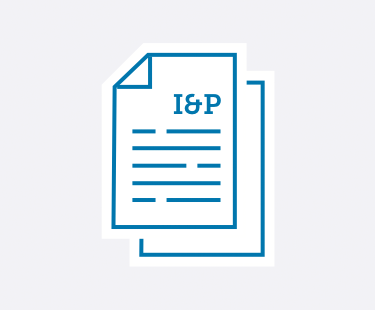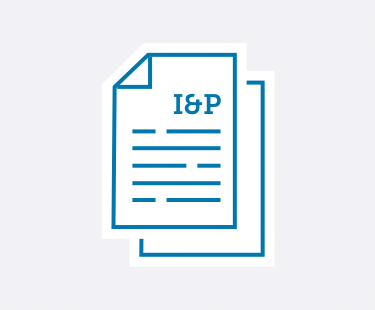

Learn practical strategies to handle emerging trends and leadership challenges in private schools.
No matter if you’re a School Head, Admission Director, Development Director, Board member, or any other private school administrator—Ideas & Perspectives®, ISM’s premier private school publication, has strategic solutions for the pervasive problems you face.
- Tuition not keeping pace with your expenses? In I&P, explore how to use strategic financial planning to create your budget and appropriately adjust your tuition.
- Enrollment dropping off? Discover how to implement the right admission and enrollment management strategies that engage your community—and fill your classrooms.
- Trouble retaining teachers? Learn how you can best support your teachers using ISM’s Comprehensive Faculty Development framework. Your faculty members will become more enthusiastic about their roles—which ultimately improves student outcomes.
- Fundraising campaigns not as successful as you’d hoped? Implement ISM’s practical advice and guidance to build a thriving annual fund, construct an effective capital campaign, and secure major donors—no matter your community size or location.
- Not sure how to provide professional development—for you and your staff? Learn ways to develop and fund a successful professional development strategy. You can improve teacher-centered satisfaction and growth, which in turn strengthens student-centered learning.
- Problematic schedule? You can master the challenges of scheduling with the help of ISM’s practical advice, based on our experience with hundreds of schools and our time-tested theories.
- And so much more.
I&P has shared targeted research, up-to-date insight, and sound theory with school leaders since 1975. More than 8,500 private school decision-makers find the answers to their schools’ administrative and governance matters in our advisory letter. We give you the strategic answers you need.
As an ISM Silver or Gold member, you not only receive issues online and in print 10 times a year, but you have access to 900+ articles in our web archive. Need help? It’s at your fingertips! Learn more and sign up for ISM's membership here.
Search
See the articles from our latest issue of Ideas & Perspectives.
Cash Reserves: Stability and Opportunity!
Volume 32 No. 4 // March 29, 2007
It has been no statistical fluke that in all three iterations of the ISM Stability Markers®, the No. 1 or No. 2 marker has been cash reserves. While this item is a formulaic mix of cash reserves, debt, and endowment, the practical piece of this is the cash reserve itself – an amount of money equal to 15% of the operations budget and 2% of the replacement of the school facility to a maximum of 20%. This is neither a quasi-endowment (i.e., restricted by the Board for its own purposes) nor the seed money for a real endowment. It is cash in the bank that can be accessed at a moment’s notice.
1. Already a member? Click here to login.
2. Not a member? Click here to become a member.
3. Not sure? We'll help you figure it out.
The Portrait of the Graduate: Three Good-to-Great Examples
Volume 32 No. 3 // March 5, 2007
ISM’s Purpose and Outcome Statements concept was developed in a series of I&P articles suggesting that mission statements alone will always fall short of their hoped-for goal of defining your school’s institutional purposes in ways that are simultaneously visionary and practical.1 Mission statements—abstract documents by nature—must be supplemented by two other documents: first, the Portrait of the Graduate, and second, Characteristics of Professional Excellence for faculty. Done well, these pithy documents supply inspiration, universality, particularity, and concreteness.
1. Already a member? Click here to login.
2. Not a member? Click here to become a member.
3. Not sure? We'll help you figure it out.
Marketing Your Purpose and Outcome Statements
Volume 32 No. 3 // March 5, 2007
Recently in I&P, we recommended that schools refine or develop three Purpose and Outcome Statements: the school’s mission (more likely a review and refinement), the Portrait of the Graduate, and the Characteristics of Professional Excellence for faculty. While each one has its place in guiding the school’s day-to-day educational activities, they can also be used to clearly differentiate the school from its competition. The three statements and how they are fulfilled provide an excellent opportunity for the school to describe its distinguishing characteristics for its constituencies (internal and external).
1. Already a member? Click here to login.
2. Not a member? Click here to become a member.
3. Not sure? We'll help you figure it out.
The Buck Starts Here: Philanthropic Responsibilities of Your Board
Volume 32 No. 3 // March 5, 2007
The central philanthropic duty of Board members—each member’s personal involvement in giving to the school and securing resources from others—is often unclear to Trustees, particularly those members who are new to the Board. ISM frequently hears comments like the following.
1. Already a member? Click here to login.
2. Not a member? Click here to become a member.
3. Not sure? We'll help you figure it out.
New Federal Rules Spur Need to Review Email and Internet Policies
Volume 32 No. 2 // February 10, 2007
In December 2006, new federal rules went into effect concerning the sharing of electronic documents during the discovery phase of litigation. In brief, the rules require parties involved in federal lawsuits to produce “electronically stored information” prior to trial. While sharing of electronic documents prior to trial has become commonplace in recent years, the new rules codify the practice, as well as require that the documents be provided in a timely and efficient manner.
1. Already a member? Click here to login.
2. Not a member? Click here to become a member.
3. Not sure? We'll help you figure it out.
Board Service: A Sample Written Commitment
Volume 32 No. 2 // February 10, 2007
Consistent with the implications of five ISM Stability Markers’™ collective emphasis upon the nature and importance of forming and maintaining a “strategic” Board of Trustees, ISM here offers a recommended sample form and process for use with new (and veteran) Trustees. This form is designed to go beyond the obvious “pledge and promise” implied by its title. It is designed to educate every Trustee equally regarding the nature of his or her acceptance of this volunteer role in your private-independent school. That being the case, ISM recommends that the Board President instruct the Committee on Trustees Chair to require a fresh signature from every Trustee, every year.
1. Already a member? Click here to login.
2. Not a member? Click here to become a member.
3. Not sure? We'll help you figure it out.
The Board's Contract With the School Head: Solidify Expectations, Define Relationships
Volume 32 No. 1 // January 14, 2007
A reasonable contractual agreement between the Board and its sole employee, the School Head, encourages moderation, compromise, and perspective. While some feel contracts promote distrust, the opposite is true. The document, properly designed and implemented, will enhance the relationship between the Head and the Board by bringing clarity, focus, and mutual benefit to the most critical employment relationship of the school.
1. Already a member? Click here to login.
2. Not a member? Click here to become a member.
3. Not sure? We'll help you figure it out.
An Annotated School Head Contract
Volume 32 No. 1 // January 14, 2007
This model has been prepared to fit contract renewal for an experienced Head, but it can be readily adapted for other circumstances. In the case of a newly employed Head, all terms that refer to continuance would not be used in the initial contract, nor would a school be likely to provide for a mini-sabbatical such as that specified in Promise 9. The model also provides for school housing (Promise 5) and a school vehicle (Promise 7)—both easily omitted. These types of agreements are, in general, governed by the laws of the state where the school is located. Because these laws may differ, it is important that you have your legal adviser review all contracts. This model contract is not considered copyrighted material. You are encouraged to copy this contract and adapt it to your school’s needs. Be sure to have your school’s lawyer review it and ensure it meets all state regulations.
1. Already a member? Click here to login.
2. Not a member? Click here to become a member.
3. Not sure? We'll help you figure it out.
The Private-Independent School Headship: A Management and Leadership Xcellence Formulation
Volume 32 No. 1 // January 14, 2007
Consider the ISM X™ (The ISM Management and Leadership Xcellence Formulation). Designed to communicate a series of critical organizational, financial, and cultural principles, the ISM X also contains implicitly the outcomes of: ISM’s 2004-05 Head leadership studies, ISM’s 1989-95 student performance and faculty culture study, and the internal ISM studies that have resulted in three iterations of the ISM Stability Markers®, the latest being in 2006.
1. Already a member? Click here to login.
2. Not a member? Click here to become a member.
3. Not sure? We'll help you figure it out.
The Development Quartet: The Core Leadership Team of the Comprehensive Development Model
Volume 31 No. 16 // December 28, 2006
A donor-centered approach to development focuses on relationship management—the process by which schools identify, cultivate, solicit, recognize, and steward donors and prospects to establish and nurture relationships and to raise funds and other resources. This approach puts new responsibility on those who are most accountable for defining and selling the school’s vision and strategic direction.
1. Already a member? Click here to login.
2. Not a member? Click here to become a member.
3. Not sure? We'll help you figure it out.


